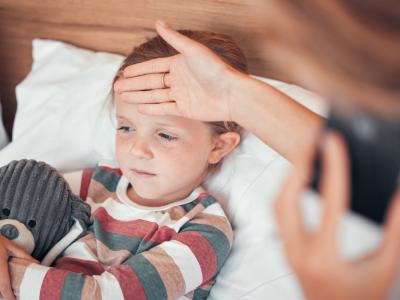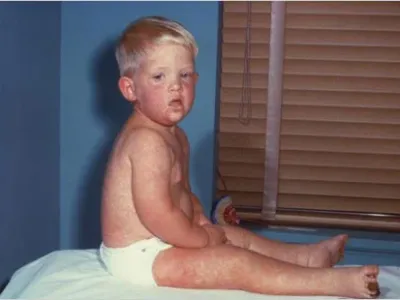Babies and toddlers 2 years and under experienced different long-COVID symptoms than preschoolers ages 3 to 5 years, according to a study yesterday in JAMA Pediatrics.
The study is the latest body of research to come out of the National Institutes of Health (NIH)-funded Researching COVID to Enhance Recovery (RECOVER) initiative, and was conducted by researchers at NYU Grossman School of Medicine in New York City, Mass General Brigham in Boston, and elsewhere in the United States.
In total, 472 infant and toddlers were in the youngest group, and 539 preschool-aged children were in the older group, with all study participants enrolled from March 2022 to July 2024. Enrollment took place at 30 US medical centers.
About 15% of kids had long COVID
Overall, among children who had been previously infected with COVID-19, 40 of 278 infants 2 years and under (14%) and 61 of 399 children ages 3 to 5 years (15%) had persistent symptoms that could be likely classified as long COVID.
Long-COVID symptoms were based on caregiver-reported symptoms lasting at least 90 days after COVID infections; in total 41 symptoms in the infant/toddler group and 75 symptoms among preschool-aged children were considered. Children with COVID-19 were compared to those who never had the virus.
We found a distinguishable pattern for both age groups of young children, including symptoms that are different than what we see in older children and adults.
“We found a distinguishable pattern for both age groups of young children, including symptoms that are different than what we see in older children and adults,” said co-senior author Andrea Foulkes, ScD, director of Biostatistics at Massachusetts General Hospital (MGH) and a professor in the department of medicine at Harvard Medical School, in a press release from Mass General.
Dry cough common in preschoolers
The most common long-COVID symptoms described by caregivers among infants and toddlers were trouble sleeping, fussiness, poor appetite, stuffy nose, and wet cough. Preschool-aged children were more likely to have a dry cough and daytime tiredness or low energy, the authors said. In total, 74% of preschoolers with probable long COVID reported a dry cough.
These symptoms differ greatly from those commonly seen in older kids and teens who have long COVID. Older school-age children are more likely to report neurologic symptoms, while adolescents are more likely to have a change or loss in smell or taste, pain, fatigue-related symptoms, according to accompanying patient page published in JAMA Pediatrics. Teens are also more likely to report post-exertional malaise.
"The pathophysiology and mechanisms leading to these age-related differences warrant further investigation," the authors of the study wrote. "The findings that infants/toddlers and preschool-aged children have varied symptoms may be explained by the fact that symptoms in younger children are reported based on what caregivers can observe rather than what the children themselves are feeling and describing."
"Children with these symptoms often had worse overall health, lower quality of life, and delays in development," said co-first author Tanayott (Tony) Thaweethai, PhD, associate director of biostatistics research and engagement at MGH, in the news release.
"The tools from this study can be used in future studies to better understand long COVID in young children and develop ways to care for them," added Foulkes.






















